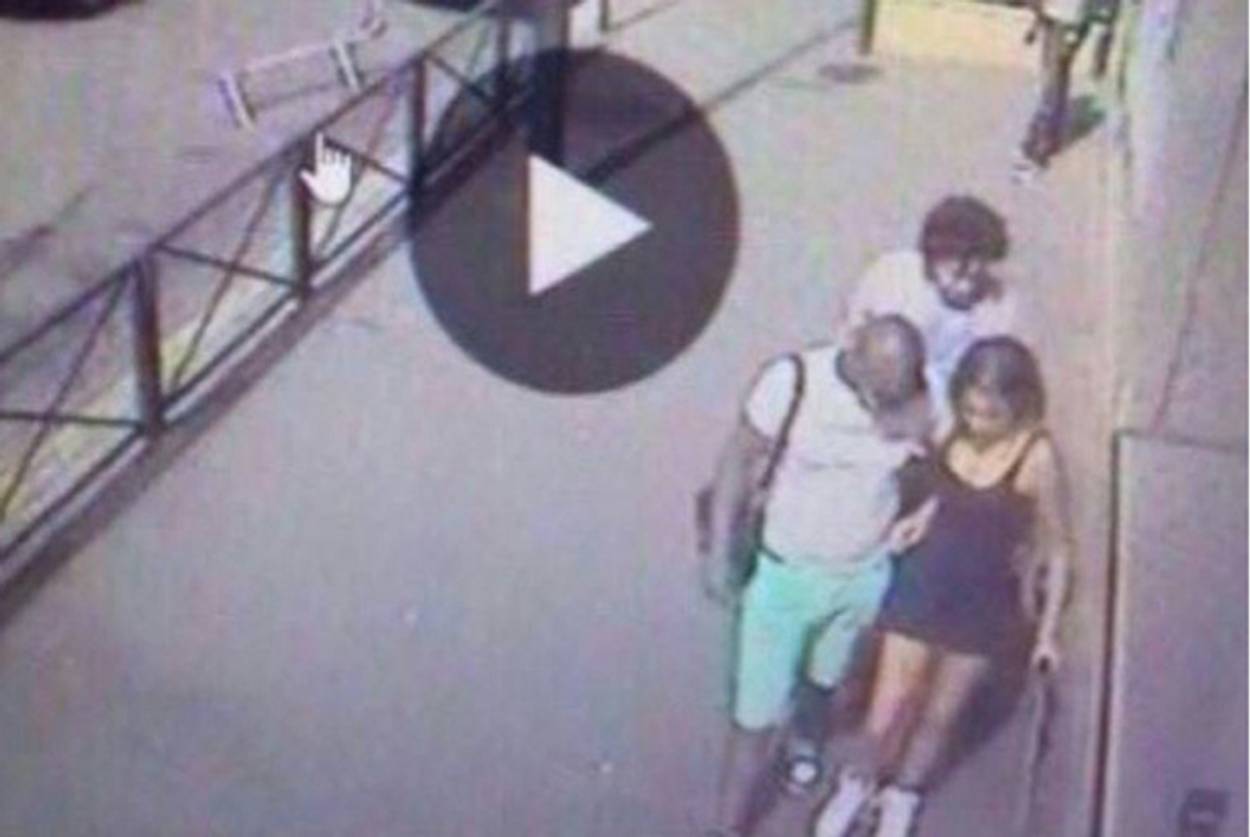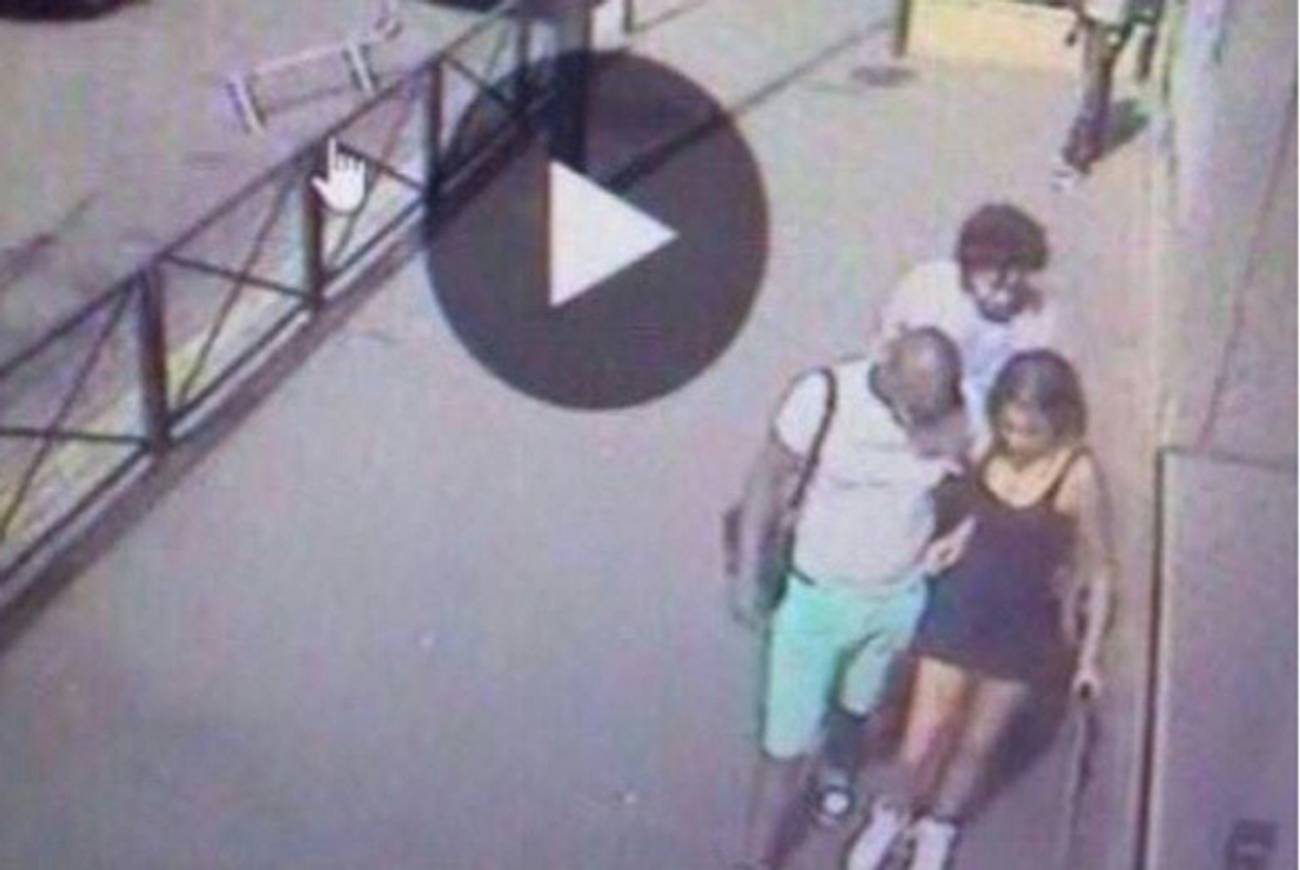Kosher Supermarket Gunman Caught on Tape Casing Jewish School in August
Amedy Coulibaly reportedly asked security guards if there were Jews inside




This stunning picture shows Amedy Coulibaly—the future Hyper Cacher terrorist—and his girlfriend Hayat Boumedienne searching for locations in front of a Jewish school. (The identity of the school remains secret for security reasons.) Taken at the end of August by the school’s surveillance camera, it was released two days ago by the French website Le Monde Juif. The still shows the couple approaching the school and asking if “it was true that there were Jews inside of the building.” Their behavior appeared so strange that, in response, the security asked them to leave.
A few weeks later, in September, Boumedienne and Coulibaly walked into a BMW car dealership in Bordeaux, where they bought a used black top-of-the-line Mini Cooper Countryman for 27,200 Euros. Although unemployed at the time, Boumedienne paid with money she seems to have obtained through a regular loan from her bank. In November, that car was resold in Belgium to an underground garage owner, through one Metin Karasular, 45, himself owner of an underground gaming room in Charleroi. In his garage, police found a list of weapons matching the weapons discovered in Coulibaly’s hideout. They believe the car may have been traded for the gun.
Hayat Boumedienne grew up in a small building of Haute-Noues, a cité set in Villers-sur Marnes, a suburb of Paris. The place is considered hot—it was one of the sensitive spots during the 2005 riots, and repeated acts of delinquency were reported there last summer. Boumedienne is the third daughter of an Algerian couple with six children. Her mother died when she was 8, and her father remarried very shortly afterward to a woman he went to Algeria to meet. When she was 13 years old, Hayat Boumedienne, who resented her stepmother, was placed in a foster home in a residential neighborhood. She then turned into a regular quiet teenager, studying science and management technology in her public high school. Although she failed her baccalauréat (French high school exit exam), she quickly found a job after school in a computer chainstore.
She met Coulibaly one year later in 2008. The boy had just been released from jail after a five-year sentence for robbery. He worked as a coach in a suburban gym. His training was sponsored by Coca-Cola. (In 2009, in a PR campaign to promote the company’s involvement in social partnerships for reinsertion, Coulibaly, along with other youngsters, was received by then-President Nicolas Sarkozy at the Elysée.) Pictures of the young couple on vacation in Crete and Malaysia at the time show Hayat Boumedienne wearing bikinis and sunglasses.
According to testimonies quoted by Le Nouvel Observateur, both Boumedienne’s foster family and her father opposed the relationship—on the grounds that Coulibaly had done time and also, it seems, on the grounds that he was black. The host family was dead set against a Muslim wedding—to which Boumedienne’s father ended up agreeing, even standing at the Islamic ceremony.
From the fragmented pieces of information emerging from the investigation, it seems that the couple clashed a few times after the wedding and that the subject of the quarrel was sex and religion. At some point, Coulibaly decided he wanted to take a second bride—in accordance with Islamic law—which provoked Boumedienne’s anger. Under Boumedienne’s pressure, Coulibaly finally changed his mind.
Who among the couple first started to “radicalize” is not clear. Boumedienne did decide to wear the Muslim veil on her own. But it’s Amedy Coulibaly who, in 2010, took her to central France to visit Djamel Beghal, the radical Islamist he met in jail, where he also met the Kouachi Brothers.
Coulibaly was arrested in March 2010 under the suspicion he had helped Smaïn Belkacem—the leader of the 1995 Paris Metro and RER regional rail terror attacks—to escape jail. Police found 240 Kalashnikov bullets in his home. Because of this, he was sentenced to five years in prison in December 2013, but a statement that he would start vocational training to become a salesman led to his release in March 2014, when he was put under surveillance with an electronic bracelet. The bracelet was off in May. Three months later, the couple was captured on video in front of the Jewish school.
Marc Weitzmann is the author of 12 books, including, most recently, Hate: The Rising Tide of Anti-Semitism in France (and What It Means for Us). He is a regular contributor to Le Monde and Le Point and hosts Signes des Temps, a weekly public radio show on France Culture.